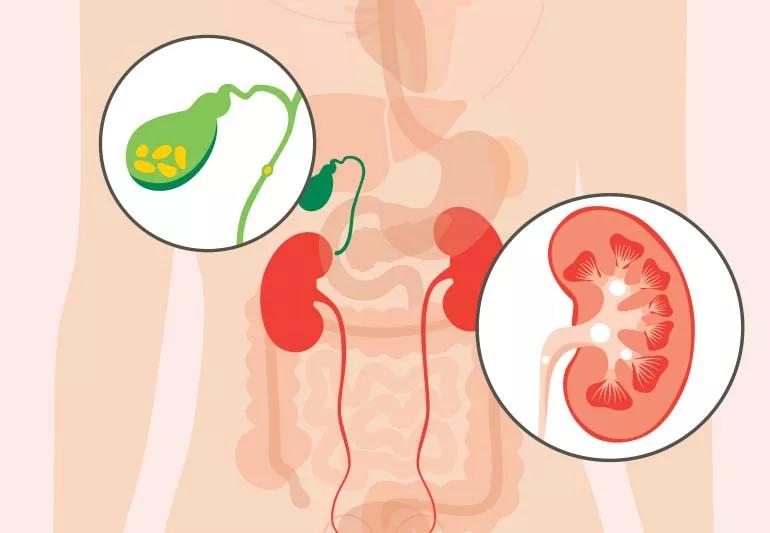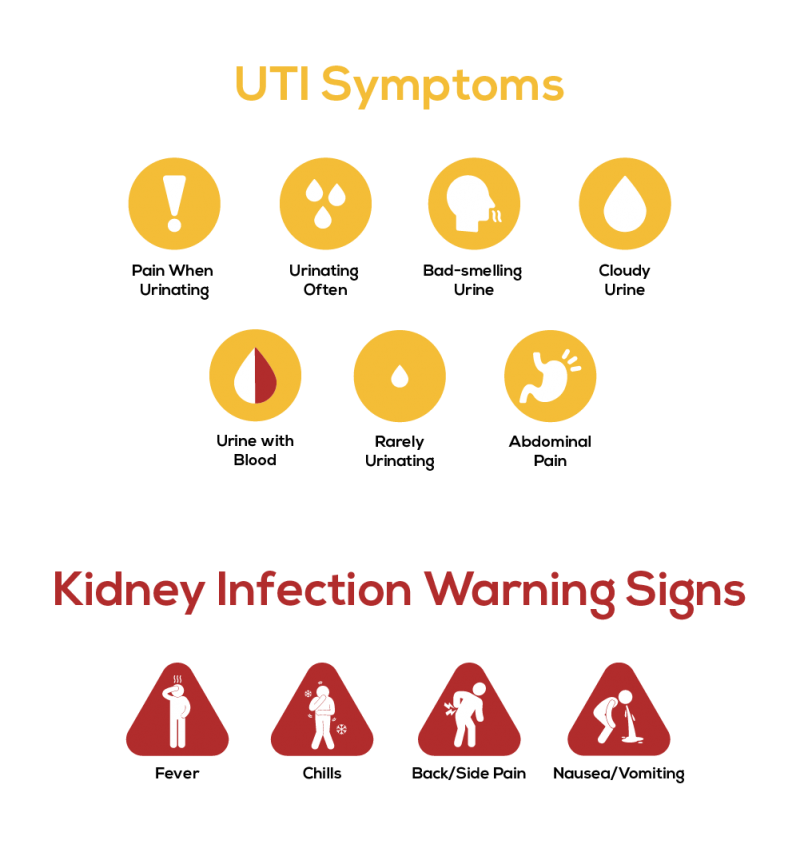Kidney Stones vs UTI: Crucial Details on Therapy Alternatives and Avoidance
Kidney Stones vs UTI: Crucial Details on Therapy Alternatives and Avoidance
Blog Article
Checking Out the Manifestations and Causes of Kidney Stones in Comparison to Urinary System Infections: An In-depth Overview
The expedition of kidney stones and urinary system tract infections (UTIs) discloses an intricate interaction of symptoms and underlying reasons that call for careful evaluation. While both conditions can result in hematuria, they offer distinct clinical features and arise from different etiological aspects. Comprehending the subtleties of each problem is critical for reliable diagnosis and management. What are the essential distinctions in their signs and symptoms, and just how might these educate treatment approaches? The response to these concerns may supply important insights into the prevention and care of these typical urological issues.
Introduction of Kidney Stones
Kidney rocks, additionally called kidney calculi, kind when specific compounds in the pee crystallize and aggregate, resulting in the advancement of hard down payments within the kidneys. These rocks can vary in dimension, ranging from a grain of sand to a golf sphere, and can be composed of different products, the most typical being calcium oxalate, uric acid, struvite, and cystine. The formation of kidney stones is influenced by several factors, including nutritional practices, fluid consumption, and hereditary tendency.
Symptoms of kidney stones might include serious discomfort in the back or side, blood in the urine, nausea, and frequent urination, specifically as the stone relocates with the urinary system system. Diagnosis commonly entails imaging research studies such as ultrasound or CT scans, along with urinalysis to determine the stone's make-up.
Therapy choices vary based upon the dimension and kind of stone, in addition to the severity of symptoms (Kidney Stones vs UTI). Small rocks may pass normally with enhanced fluid intake, while bigger rocks might need medical treatments such as lithotripsy or surgical removal. Recognizing the pathophysiology and threat elements related to kidney rocks is necessary for efficient prevention and management
Overview of Urinary System System Infections
Urinary system infections (UTIs) are typical bacterial infections that affect any kind of component of the urinary system, including the kidneys, ureters, bladder, and urethra. They primarily happen when microorganisms, frequently from the intestinal tract, enter the urinary system, leading to inflammation and infection. UTIs are classified right into 2 primary types: uncomplicated and challenging. Straightforward UTIs typically take place in healthy and balanced people with typical urinary systems, while difficult UTIs might develop in individuals with underlying problems, such as structural abnormalities or jeopardized immune systems.
The occurrence of UTIs is notably higher in ladies than men, mostly because of anatomical distinctions, such as a much shorter urethra. Danger aspects include sexual activity, certain contraceptive techniques, urinary system retention, and dehydration. The diagnosis of UTIs is generally confirmed via urine examinations, which might expose the visibility of microorganisms, leukocyte, or red cell.

Signs of Kidney Stones
The discomfort connected with kidney stones can materialize in different ways, frequently leading people to seek clinical interest. Among the most typical signs is extreme pain, typically localized in the reduced back or side, which might emit to the abdomen or groin. This pain, often defined as sharp or cramping, can happen unexpectedly and may change in strength.
In addition, people may experience hematuria, or blood in the pee, which can range from tiny total More Help up to visible discoloration. This symptom may be gone along with by changes in urinary system practices, such as increased frequency or urgency, in addition to pain during urination. Queasiness and throwing up are additionally widespread, typically resulting from the body's response to intense pain.
Sometimes, individuals might experience fever and cools, specifically if a second infection establishes due to the obstruction created by the stones. Generally, the mix of severe discomfort, hematuria, transformed urinary system patterns, and stomach signs and symptoms can give substantial understanding into the visibility of kidney stones, calling for prompt clinical assessment and intervention. Comprehending these signs and symptoms is crucial for timely medical diagnosis and effective administration of the problem.
Signs And Symptoms of Urinary Tract Infections
Infections within the urinary system tract typically offer a series of unique signs that can considerably influence day-to-day live. discover this The most common symptoms consist of a persistent desire to pee, typically come with by a burning experience throughout urination, referred to as dysuria. Individuals might additionally experience increased regularity of urination, creating tiny quantities of urine each time.
Various other noteworthy signs consist of gloomy or fetid pee, which may indicate the visibility of microorganisms or pus. In many cases, urine might show up pink or red due to the presence of blood, a problem recognized as hematuria. Furthermore, people may experience pelvic discomfort or stress, which can further intensify the sensation of necessity.
Systemic signs and symptoms may additionally manifest, such as high temperature, chills, and tiredness, especially if the infection has actually ascended to the kidneys. It is necessary to identify these signs and symptoms early, as untreated urinary system infections can result in more severe difficulties. Kidney Stones vs UTI. Prompt clinical interest is advised when these signs and symptoms are observed, enabling suitable diagnostic assessment and treatment to reduce discomfort and protect against additional health concerns
Reasons For Each Condition
Frequently, kidney stones and urinary tract infections emerge from distinctive yet occasionally overlapping causes that can influence individuals differently. Kidney stones generally form because of metabolic factors, dietary selections, and hereditary predispositions. Raised degrees of calcium, oxalate, or uric acid in the urine can result in rock formation. Dehydration, insufficient fluid consumption, and high-sodium diet plans can worsen these conditions, promoting crystallization within the urinary system.

Understanding these distinctive reasons is vital for avoidance and treatment. Kidney Stones vs UTI. While way of life modifications might mitigate the risk of kidney stones, appropriate health and punctual treatment of urinary tract infections are vital for reducing their reoccurrence and associated problems
Verdict
In summary, kidney stones and urinary system tract infections existing distinct symptoms and underlying reasons. Kidney rocks are identified by extreme pain and metabolic elements, while urinary system infections mostly involve microbial infections bring browse around this web-site about urinary system urgency and discomfort. Both problems can result in hematuria, their formation systems vary substantially. Recognizing these differences is crucial for reliable medical diagnosis and therapy, eventually enhancing individual results for those impacted by either problem.
The expedition of kidney stones and urinary tract infections (UTIs) discloses an intricate interaction of signs and underlying reasons that call for careful assessment.Urinary tract infections (UTIs) are typical bacterial infections that influence any kind of component of the urinary system, including the kidneys, ureters, bladder, and urethra.Frequently, kidney rocks and urinary system tract infections occur from unique yet often overlapping causes that can impact individuals differently.In summary, kidney stones and urinary system infections present distinctive symptoms and underlying reasons. Kidney stones are characterized by extreme discomfort and metabolic aspects, while urinary tract infections mostly entail bacterial infections leading to urinary necessity and pain.
Report this page